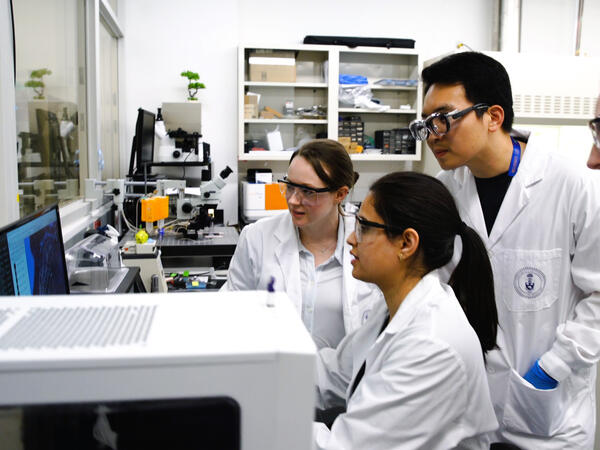
Rob
Bonin
144 College Street
Toronto ON M5S 3M2
Canada
Area of Research
Rob Bonin’s research concerns the molecular mechanisms of pathological pain and cognitive disorders. His group explores nervous system plasticity or “rewiring”, and how neuronal activity maintains and modifies plastic changes in the nervous system. Through this work, they aim to examine how maladaptive plasticity contributes to disorders such as chronic pain or post-traumatic stress disorder.
Research Challenge
One of the most extraordinary qualities of the nervous system is its ability to modify and update the trillions of connections between cells according to an individual’s experiences. Called plasticity, this process of rewiring is what makes learning and memory possible. This plastic process can occur throughout the entire nervous system, from the brain to the spinal cord. In the same way that connections in the brain are strengthened to form a memory, changes in the spinal cord can arise that change our sensory perception – and not always for the better. For example, strengthening of the connections that transmit pain information from the skin to the spinal cord can result in chronic pathological pain that continues long after the original source of the pain is gone. Most treatments for chronic pain only suppress sensory function rather than treating the underlying molecular cause, and thus do not provide adequate relief.
Proposed Solution
Much like erasing a traumatic memory trace through interventions like cognitive behavioural therapy, the strengthened neuron connections in pathological pain can potentially be reversed. Bonin and his team aim to uncover the molecular changes and cellular processes involved in nervous system plasticity to identify new treatments that can target the root cause of chronic pain. The team uses optogenetic methods, which use light to alter neuron activity, and behavioural electrophysiology in pre-clinical models and in vitro cellular models to study how sensory input modifies nervous system connectivity to both induce and reverse chronic pain.
Impact To Date
Bonin and his team have developed new optogenetic approaches that allow them to study specific sensory pathways, particularly the pain pathway. Bonin’s work aims to provide a conceptual framework for how plastic changes arise and are sustained in the nervous system to better understand how this plasticity can go wrong and contribute to pathological conditions. He and his team also aim to identify potential drug targets that would act to reverse pathological plasticity and address the source of the pain, helping pave the way for the development of new treatments that are more effective for chronic pain.
Awards
- Canada Research Chair in Sensory Plasticity and Reconsolidation
- Canadian Pain Society Early Career Investigator Research Award
- Ontario Early Researcher Award
- Marlene Reimer Brain Star of the Year Award
Publications
Keywords: pain, pain management, neuronal activity, sensory process, cognitive processes, synaptic plasticity, plasticity, nervous system, pain hypersenstivity, memory traces, pathological pain, cognitive disorders, spinal cord


